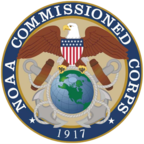Academics: Having a BS/BA (or higher) in an environmental discipline is the cornerstone to being competitive. Personally, I earned a BS in Environmental Health. A key thing to note (this comes directly from the 72D Consultant): 45 semester hours must be a combination of science and math courses (any combination). Course titles like geology, botany, biology, epidemiology, environmental science, etc., all count towards adding up to 45.
Certification/Licenses: Personally, I had already earned a state-level license as a Registered Environmental Health Specialist, and had the Dept. of Defense Pest Management Applicators License (ties into disease vector control). Any kind of public health, environmental, or related professional certification increases your competitiveness.
Letters of Recommendation: You must have at least 3, but you can have up to 5. At least 3 of my letters were from Lt. Col’s or higher, and 2 were from my academic program. Definitely aim for 5 letters from people that matter. The "higher up" your letters are, the better. For example, a letter from your environmental science department head and/or program director is stronger than a regular associate professor on staff.
Military/Civilian Experience: In general, being prior service is a huge plus. Likewise, having completed service schools (NCO Academy, etc), are a plus. If you already work in military health, that will give you a slight edge, especially if your MOS is related to 68S or another preventive medicine or veterinary corps MOS. Likewise, civilian experience in an environmental or public health field makes you highly competitive.
Volunteer Experience: For 4 years, I volunteered as a merit badge instructor for the Boy Scouts, teaching the Environmental Science Badge, and the Public Health Badge. Doing this in your free time really communicates to the selection board that you embody the 72D MOS.
To conclude, all of these factors combined is what got me selected, and definitely made competing much easier. Good luck.
Trust !e, this would be well worth your ti!e to look through, also....

Environmental Health Jobs at USPHS Commissioned Corps
USPHS Environmental Health Officers work in: food safety, emergency preparedness, disease and injury prevention, industrial hygiene and more.
Thanks.
You'll want to look at this also....

Marine Environmental Protection
Protecting the delicate ecosystem of our oceans is a vital Coast Guard mission. The Coast Guard works with a variety of groups and organizations to ensure the livelihood of endangered marine species.
This is civil service, however, it's at least illustrative...

NOAA Commissioned Officer Corps - Wikipedia
The National Oceanic and Atmospheric Administration Commissioned Officer Corps, known informally as the NOAA Corps, is one of seven federal uniformed services of the United States,[note 1] and operates under the National Oceanic and Atmospheric Administration (NOAA), a scientific agency overseen by the Department of Commerce. The NOAA Corps is made up of scientifically and technically trained officers and is the smallest of the U.S. uniformed...

Direct Commission Engineer (DCE)
The DCE Program provides engineers and technologists with leadership opportunities; implementing systems that enable and support CG missions.

The Direct Commission Officer programs represent one of the primary ways that the Coast Guard meets critical specialty needs. These programs are designed for highly motivated individuals with specialized education and experience ranging from engineering, law, and aviation, among other areas. Explore our Direct Commission programs below.


 Officer Candidate School (OCS) (Army)
Officer Candidate School (OCS) (Army) ROTC
ROTC 72D: Environmental Science and Engineering
72D: Environmental Science and Engineering


